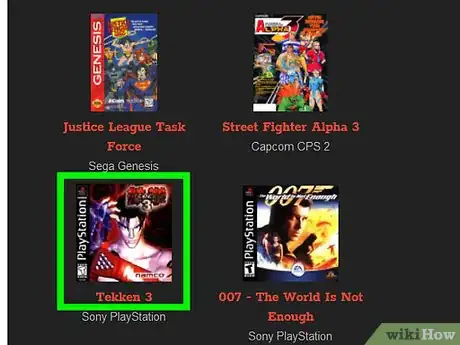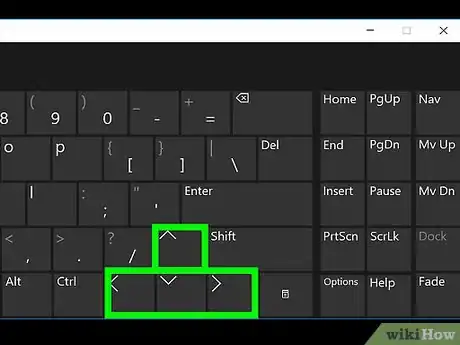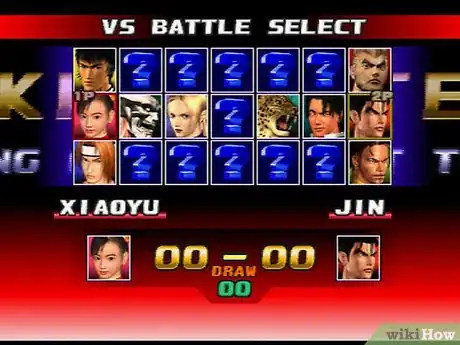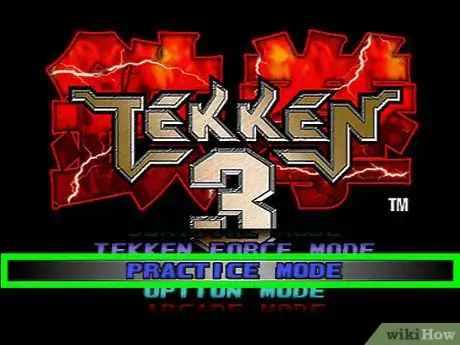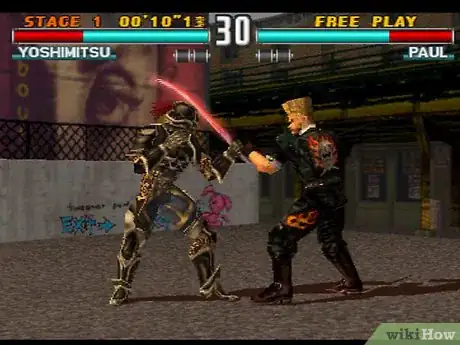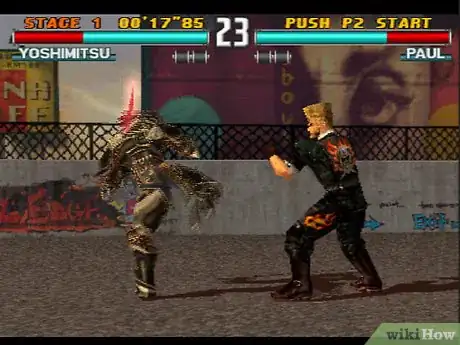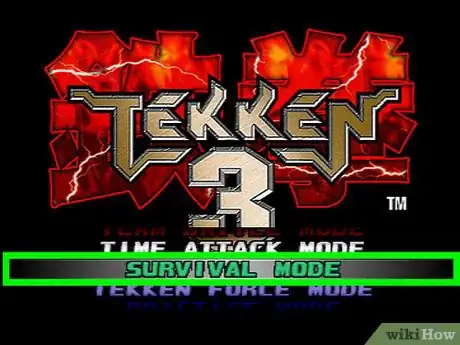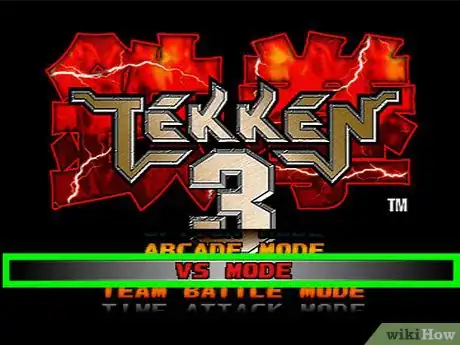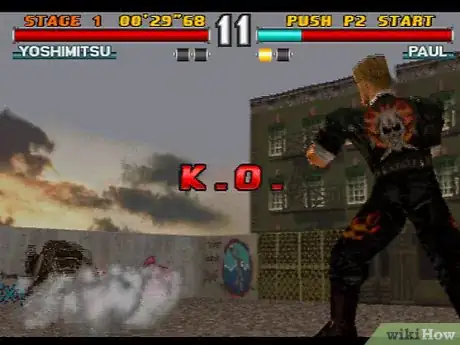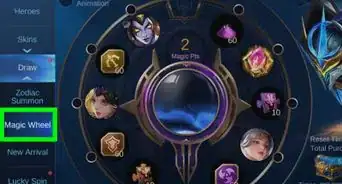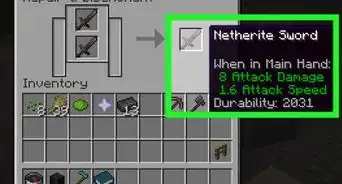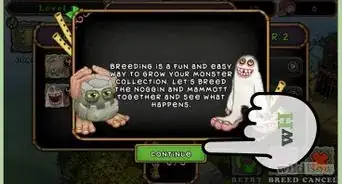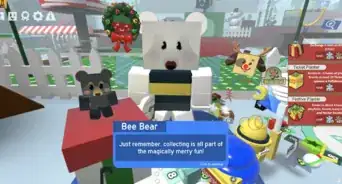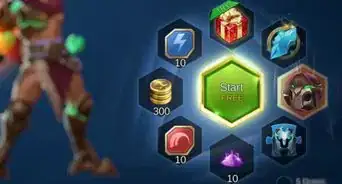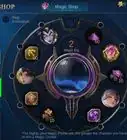X
wikiHow is a “wiki,” similar to Wikipedia, which means that many of our articles are co-written by multiple authors. To create this article, 21 people, some anonymous, worked to edit and improve it over time.
There are 8 references cited in this article, which can be found at the bottom of the page.
This article has been viewed 104,637 times.
Learn more...
Fighting games; Pure button-mashing bliss, and one of the most fun genres of all time. Many people take to fighting games naturally, but other people? Not so much. This article is for those of you just starting to play fighting games, or those who just want to get better.
Steps
-
1Choose a fighting game of choice. Many people enjoy Blazblue, King of Fighters, Tekken, Virtual Fighter, Marvel Vs. Capcom 2, Street Fighter, and other such games. A lot of games, especially if they're of the same dimension (like, 2D fighters) they generally share a lot of similarities that can be applied.[1]
- Pick a fighting game that interests you and appeals to you so that you’ll be willing to play it and invest time into the game. Invest time into learning the game you chose.
-
2Know the control buttons. If you aren't used to the controls, consider changing them to your liking so that you won’t have to look down at your control every time you want to execute a move, as these types of games require your entire focus on the screen.Advertisement
-
3Choose a "main" character, or set of characters, that you want to focus on getting better with. You'll have to play around with a few characters to find which one you're the most comfortable with.[2]
-
4Go into the Practice or Training mode of the game, and start learning what your character can do. Learn what your character's good at, know which normal to use at each range, the recovery of each normal and it's usefulness and properties. Then move onto the special moves along with supers and how to apply them then, move onto combos.
- Play the tutorial as soon as you decide which game you'd like to buy. Study what it will show you, including the basics of all fighting games and mechanics for that specific game. It’ll also show you some already built in combos for certain characters, depending on who’s being used in the tutorial.
- Play the story mode once the tutorial is finished. Aim to figure out how those newly learned mechanics and combos can be used in actual gameplay against an opponent, the level of difficulty of the story/arcade mode can be picked at the users leisure, and comfort level. However, consider medium difficulty so that you have a challenge, but not so much that makes you not want to play the game.
-
5Learn to block. The Importance of blocking cannot be stressed enough! Always block as this is the easiest and most effective way to avoid taking large amounts of damage. Learn to recognize overheads (Moves that can hit players that are crouching and blocking) , patterns, sweeps (A normal move that knocks an opponent down, usually a cr. Roundhouse) and cross-ups (A mid-air attack that makes it more difficult for an opponent to determine whether they should block left or right).[3]
-
6Learn movement. Movement is a really underrated aspect in fighting games. Try to learn about moves that can help your character zip across the screen (Zangief's Green Glove/Banishing Flat and Yang's command dash from Street Fighter IV). Some characters might have a 8 way air dash which is a very valuable asset (Dr. Doom/Magneto/C. Viper in UMVC3). Some characters might have really amazing forward dashes, and a crappy walk speed (Makoto from Street Fighter IV) and a character might have an insanely fast back dash (Rose from Street Fighter IV). Walkspeed is also a make or break for some characters as well. Point is, be mindful of your movement options.[4]
-
7Play competitions. Start venturing out and play against your friends for competitions. Since you’ve beaten the story/arcade mode on the hardest difficulty, the artificial intelligence is no longer a challenge for you.[5]
-
8Play against other people online. It’s best that you play against other people because then you can see how well you do against another person and try to learn their tendencies and game plans and how you can adjust yours to win. If you can’t find people in person to play with, take your talents to the online circuit and battle with others in an online setting.[6]
- Playing against people online will help improve your skill at the game because it will require you to read your opponent and adapt to different situations since you’re going to be facing a multitude of opponents. Keep moving up as you battle more in the game until you can beat the tournaments.
-
9Practice and learn more and more about the game! Nobody gets good at fighting games instantly. Learn how to use training mode effectively, frame data, play online mode and set up games with friends that main different characters and attend local tournaments.[7]
Advertisement
Community Q&A
-
QuestionDo I have to go online to become a professional at fighting games?
 Community AnswerMost fighting game tournaments are actually not online and are staged at events. Obviously, this means that you don't have to go online to be a professional, but I'd highly recommend it. Unless you play those online matches, you're not going to get to the level where you can go up against pros.
Community AnswerMost fighting game tournaments are actually not online and are staged at events. Obviously, this means that you don't have to go online to be a professional, but I'd highly recommend it. Unless you play those online matches, you're not going to get to the level where you can go up against pros.
Advertisement
Warnings
- Be careful about console platforms. Some versions of a game might perform considerably worse than others (The PS3 Version of Ultimate Marvel Vs Capcom 3 has been known to lag occasionally. The Xbox 360 Version of Tekken 6 has notorious performance issues. For a while, the PS3 version of Street Fighter III: 3rd Strike Online Edition has been declared unplayable, thanks to lag and input lag)⧼thumbs_response⧽
- Don't mash throw. You'll eat up a nasty punish.⧼thumbs_response⧽
- Be mindful about your controller. There's nothing worse than attending a tourney and realizing your isn't compatible with the main console. It might be a good idea to invest in converters.⧼thumbs_response⧽
- There's a lot of trolls out there, especially online. Keep your cool, and realize that you're not at the finals of EVO 20XX (The biggest fighting game tournament)⧼thumbs_response⧽
- If you're going to buy an arcade stick, don't buy a cheap stick. Cheap sticks are usually stiff, poorly made and their parts are low-quality making execution an absolute pain. Cheap sticks are good if you're planning to do a modding job however.⧼thumbs_response⧽
- Be polite. If you can't say anything nice, please, keep silent. Sending out hate mail and being rude is a nice way to be humiliated and avoided online. Also, the same applies to rage-quitting.⧼thumbs_response⧽
- You might want to drop the fighting game genre if you lose a lot. Don't do it. Chill out, step back and review your footage. If you can't see any mistakes, bring it to a couple dudes that play fighting games.⧼thumbs_response⧽
- Overplaying can lead to the quality of your fighting and decisions to go down. Take breaks and try to avoid mental fatigue.⧼thumbs_response⧽
- Fighting game companies have a habit of cannibalizing their own fighting games.⧼thumbs_response⧽
- Be careful with online mode. You won't believe what you can get away with on an online environment compared to an offline one (like a local tournament)⧼thumbs_response⧽
Advertisement
References
- ↑ https://www.gamesradar.com/best-fighting-games/
- ↑ https://www.youtube.com/watch?v=AGHGEttNjyo
- ↑ https://in.ign.com/mortal-kombat-11/134385/feature/5-steps-to-get-better-at-fighting-games
- ↑ https://www.mineski.net/news/getting-good-at-fighting-games
- ↑ https://www.youtube.com/watch?v=pm9IECEnKHQ
- ↑ https://www.youtube.com/watch?v=FGtOnGVHtoI
- ↑ https://www.gamecrate.com/how-e-sports-how-train-fighting-games/14711
- https://kotaku.com/how-to-get-better-at-fighting-games-using-your-brain-1630498427
About This Article
Advertisement
